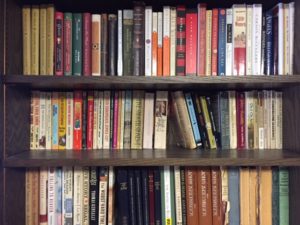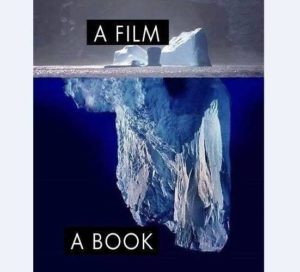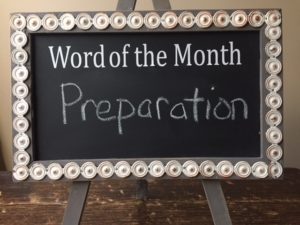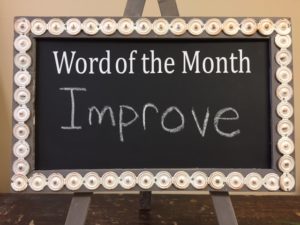We are hearing much about Socialism these days. A study of history should show that this does not turn out well. However those promoting Socialism in America propose that their version would bring all of the benefits without any of the problems.
Before we get all excited about getting free stuff, I think we need to understand some fundamental principles upon which our government and American society was founded. The principles underlying Socialism are in direct opposition to the principles underlying democracy and our way of life – the American Dream.
In the Beginning
The founders of our country wanted a government that didn’t interfere or impede personal pursuit of happiness. In the world they came from peoples’ lives were limited by the circumstances of their birth. They sought to eliminate those constraints and place everyone on the same ground. That does not mean there are not limits, but rather than limits imposed by culture or government, all are limited by their own personal desire, initiative and effort.
There were no guarantees of prosperity given to these new Americans by their newly established government. Just opportunity and guarantees that the government would not restrict their rights. The prosperity of the Nation was dependent upon the prosperity of its citizens. They prospered through their initiative and hard work. Their efforts benefited not only themselves and their families, but they also contributed to society. When everyone contributes, society prospers.
A Living Wage
One expectation of this new socialism is that everyone is entitled to an income sufficient for them not just to live – but to live comfortably, or in a manner in which they would like. They use the term “a living wage”. The reality is that people all over the world are “living” on very little income, especially compared to what most people in this country make. Even those living near poverty in this country live better than many in the world.
Wages are based, not on needs of the worker, but on what the work is worth – the value of it to an employer or someone seeking a service. Therefore, some jobs are “worth” more than others. Usually there has been a significant investment in time and effort and experience to meet requirements for certain jobs, therefore the pay for those is higher – they are worth more.
Adjusting the Wage Gap
There are two ways to approach insufficient income – decrease expenses or increase income. Many would simply suggest pay everyone more. But it is more complicated than that.
At times I have said, somewhat tongue in cheek, that the reason my husband and I enjoy relative financial security is that we “live like poor people”. Basically, we learned to live and be comfortable living “beneath our means”. We could have, like many other people, gone into great debt to have a bigger house, nicer cars, lots of toys and expensive vacations. We adjusted our “wants” to invest in our future, so that now retired, we are comfortable and have a sense of security.
This seems to be a hard concept for many, especially young people who have come to see as necessities many things that I easily lived without for years. When things get hard, there is a great distinction to be seen between “life sustaining” and “lifestyle maintaining”. So “living wage” based on the idea of “life sustaining” would include only basics. Heat and electricity and food are life sustaining. With limited income, adjustments can and should be made on expenses.
Of course, the other way to fix the disparity is to increase income. In other words, find a job that pays better. This of course, is easier said than done. Knowing that wages are based on the value of the work done, the way to do that is to increase personal work value. It likely will require gaining more education or training to qualify for a higher paying job. This is where initiative and effort come in. It also may require delayed gratification and sacrifice to increase one’s value to employers.
The idea of the same pay for menial labor that can be done by someone with no education or training and professional work by someone with a Degree and specialized training removes the value and worth of the education and training. It removes any incentive for people to better themselves to improve their financial situation. It would dumb down the work force.
Simply “giving” jobs to everyone without even the effort of applying – the effort to sell an employer on the “worth” of your labor – results in workers with no ambition. This is even greater when the jobs given are those the person has no interest, desire or ability to do. The quality of goods and services will go down. No one really benefits.
Free College Education
Education is an investment. It takes time and effort. It requires delayed gratification and sacrifice. Many in my generation and generations before really did “live like poor people” while pursuing an education. It may take years to finish the education process, then more years of experience to get the full benefit of that investment.
The idea of financial aid for education, in the way of scholarships, grants and even student loans, should also be seen as an investment. It is not a handout, a given, an entitlement. It is not simply based on need. Those receiving such aid must take some initiative and put forth effort to apply. They must give those providing the money some assurance that this money will be well spent. They are investing in someone who will eventually give back to society in some way.
To take away any requirements, any process involving effort to apply, also takes away any accountability for how that money is used. Where is the incentive to study and do well if the money keeps coming anyway? The idea that everyone is entitled to 4 years of extended adolescent partying, while taking some classes, does nothing to benefit society. Sure they may learn some things along the way and get a Degree, but without learning responsibility and accountability, what kind of citizens will they make?
Free Housing
The promise of housing for every American sounds too good to be true – because it is. The dream of the colonists and early Americans was to own property and be able to do with it as one chooses. In the Europe they came from, there were a few very wealthy people owning most of the property.
Early Americans of course, didn’t arrive on the frontier to find a nice house and well kept yard waiting for them. They obtained some land and then “improved” it. They sweated to remove trees, cultivate land, dig ditches, build houses and other buildings. It took a great deal of work. Because of that effort, they took pride in the results. They worked more to maintain, expand and continue to improve their property.
Homes, like jobs become better with effort. They are an investment. Having them given to you without effort, removes the responsibility and accountability. If “free housing” is given, it comes with the expectation of “free maintenance”. It is the owner’s responsibility, right? We often see this with rental property. What incentive is there for tenants to improve what does not belong to them? What incentive is there for landlords to improve what they do not have to live in?
There are many homeless people in our country, and varying causes for that homelessness. Some are homeless because the costs of housing are too high. So what is the solution for them? Have the government pay for them to live in a nice house? Or provide incentives for builders to build housing that they could afford? This may not be as big or nice a house as someone else’s, but probably much nicer than a cardboard box on the street (or the makeshift shanties many in other countries live in).
Some people are homeless because they choose to be. We value freedom of choice in this country. “Free housing” would eliminate choice of where, and often how one lives.
The Choice
So even though the idea of free stuff for everyone sounds wonderful, it is a fantasy. History has shown us that Socialism cannot provide benefits without cost. The costs may not be so much monetary as they are losses of freedom. We loose our right to choose – a right that ironically seems so vitally important to the same people who advocate Socialism.
This country and our government were built upon principles of individual liberty, self-determination, personal responsibility and accountability. The role of government essentially should be to insure those inalienable rights of life and liberty and allow us “the pursuit of happiness” as we see fit. It is indeed a dream. Maybe a dream not realized the same for everyone, but the dream is available to all.
The alternative is truly a fantasy. A fantasy that in practice likely will turn into a nightmare.






